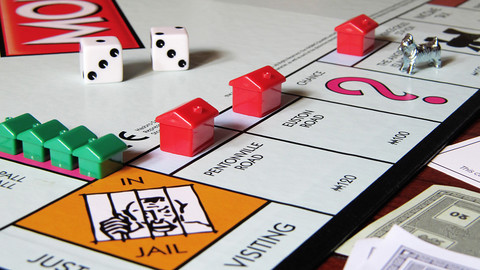My article in BUSINESS INSIDER published 8thof August 2018.
The financial crash of 2008 demonstrated (to some) that large financial institutions need to be closely watched and strictly regulated. The meltdown some believe also demonstrated the need for an alternative to complex, abuse-prone financial instruments held by few, and understood by even fewer.
Many believe that new tool could be the blockchain, with the new currency, the Bitcoin, based on it. Could they put an end to the volatility and opacity of the financial sector? Today, cryptocurrencies are on everyone’s lips, with blockchain – a distributed peer-to-peer database – growing in its shadow, promising radical change.
This could be the first time that a change in global finance comes from outside central banks, stock exchanges, and politicians.
The blockchain paradox
I have written previously about how blockchain can influence financial operations. Its working principle makes it ideal for a wide range of transactions. Blockchain transactions are always encoded, protected with a private key that’s impossible to counterfeit. There are no middlemen as transactions are conducted directly between parties as in any other peer-to-peer system. There is no need for a central organization to establish standards or issue certificates.
Blockchain forms the core of all known cryptocurrencies, offering support for instant money transfers, payment systems and smart contracts. As such, it is poised to take a substantial piece of the pie away from banks, financial oversight institutions and other intermediaries. Unsurprisingly, financial institutions, threatened by a design that keeps intermediaries and regulators out of the loop, are not eager to give up their privileged and profitable positions. For example, JPMorgan Chase CEO Jamie Dimon last year famously called Bitcoin “a fraud.” This year, he says he’s “not interested that much in the subject at all.”
For someone who’s “not interested,” he sure talks about it a lot.
Blockchain: Threat or menace?
Governments, however, areinterested, issuing multiple statements about how they intend to handle cryptocurrencies. The European Securities and Markets Authorities (ESMA), the guardian of the security of the Europe’s financial markets, has called the cryptocurrency market a dangerous place. The European Banking Authority (EBA) would like to prohibit banks from holding, selling or trading cryptocurrencies. Of course, this weighs heavily on cryptocurrency exchange rates and causes a lot of anxiety for the currency’s holders. But as cryptocurrencies raise a growing number of concerns, the blockchain technology is being more favorably regarded.
According to the World Economic Forum, by 2025, a majority of financial executives expect10% of global GDP to be stored on the blockchain. The consultancy Aite Group projects that the financial industry will invest US$800 million in blockchain implementation in 2018 and 2019. The world’s largest financial institutions are now testing the application of blockchain for swaps, which are highly complex financial transactions. The Australian Stock Exchange (ASX) wants to use it for clearing transactions. The possibilities inherent in blockchain are also being explored by Nasdaq.
So, if financial institutions consider blockchain a threat, why are they investing in it?
Read more in the full article.
Link to the full article (in Polish)
Related articles
– Blockchain poised to shake up our lives
– Will quantum computers doom the blockchain?
– Machine Learning. Computers coming of age
– Blockchain – the ultimate financial crash
– Blockchain – the Holy Grail of the financial system?
– What is blockchain? All you need to know
– Blockchain has a potential to upend the key pillars of our society










TomHarber
Satoshi had a double spend problem, so he used blockchain. Vitalik had a smart contract problem, so he used blockchain. Brendan Eich had a digital advertising problem, so he used blockchain. Nick van Saberhagen and Greg Maxwell had a privacy problem, so they used blockchain.
Tom Jonezz
If anybody has any doubts about the adoption of the DLT, just look at some of the recent headlines:
“The National Stock Exchange of India is trialing a Hyperledger-based blockchain platform to conduct e-voting for listed companies”
“Telecoms giant AT&T has announced a suite of blockchain solutions for enterprise customers”
“Austria’s government will use an Ethereum-based blockchain notarization service to issue €1.15 billion ($1.35 billion) of government bonds in a Federal Bond Auction next week”
DDonovan
This is true, our current payment rails seem to work pretty well, however there are some problems that have been costly to deal with that blockchains solve in cheaper and better ways. When ApplePay launched they were facing a 6% fraud rate. People were signing up credit cards from the Home Depot breach that occurred years before, and using them successfully. With credit card payments, essentially anyone who knows your cc number and data can steal your money and use it to get goods or services. But the only way to use our credit cards is to give everyone this info. This is why identify fraud is such a big and costly deal, as payment processors like Visa have had to pour a significant amount of money into limiting loss from fraudulent payments. Blockchain payments (cryptocurrencies like Bitcoin) do not have this problem, you can make payments over the Internet or in person without ever giving away any sensitive information. The cost savings of fraud departments and the pain of dealing with bogus charges and restoring your credit after an ID has been stolen may be worth an overhaul of the digital payment system alone.
Acula
Indeed. In the expanding world of the Internet of Things, entrepreneurs would be better off to remember two old adages: Resistance is futile, and if you can’t beat them join them. No matter its predicted benefit, the notion of change is hard to accept because people are settled into comfort zones and face resistance based on the status quo. Profiting from your information might be the best selling point. After all, everyone else will benefit from your data. Why not you?
SimonMcD
And the list of diruptors and disrupted is so much longer… the disrupted such as AOL, Blackberry, Nokia, Kodak, Postal Services, Recruiters, Greeting Cards, SMS,… everything will become cloud managed edge such as autonous cars, SDN networks, Industrial Automation, connected sensors and augmented by AI.
TomCat
Digital Disruption is more than just technology, it’s people and customer centricity driven!
DDonovan
Money is arguably one of humanity’s most important inventions. From beaver pelts to gold bars, the form and function of money has constantly fluctuated throughout history.
In the modern world, the definition of money is blurrier than ever. Central banks have opted to create trillions of dollars of currency out of thin air since the financial crisis – and on the flipside, you can actually use blockchain technology to create your own competing cryptocurrency in just a few clicks.
Regardless of what is money and what is not, people are borrowing record amounts of it.
Tom Jonezz
Any information once recorded on a blockchain can’t be changed which adds another layer of security to the data on the network thus making it immutable. Also, there are improved algorithms being developed as we speak which make it very difficult to hack into the systems or launch a DDoS attack.
Tom299
I think its a more fair statement to say that absolute worst case it reveals half of your private key, but reusing your address does always reveal some of your private key. Therefore, you shouldn’t reuse addresses. However when you make a transaction it moves all your funds to a new address anyway to prevent the problem.
Adam Spikey
Blockchain technology provides accountability, transparency, and traceability for the value chain of a company and its supply chain processes and more. Some of the commodities industry understand the value gained by having accountability for their business units by use of blockchain technologies. Eventually, more successes with these blockchain platforms will be commonplace for all commodities, not just precious metals. Blockchain technology can move on to most industries and sectors from lumber to automotive.
Norbert Biedrzycki
Right. But not only. What about smart contracts?
Tom Jonezz
The democratized nature of blockchain technology gives it the transparency & security as far as the storage & processing of transactions is concerned. Since most the networks work with some kind of consensus mechanism, manipulation of any kind is rare.
Simon GEE
Finally a clear, yet simple explanation of Blockchain. Easy to understand and see the usefulness. Thanks for sharing
TomHarber
I agree with your concerns about relying on Applied Cryptography for security without addressing the human component, but Blockchain’s distributed ledger features has many other useful benefits beyond just security.
Zwierzak
Not so far. Crisis is coming